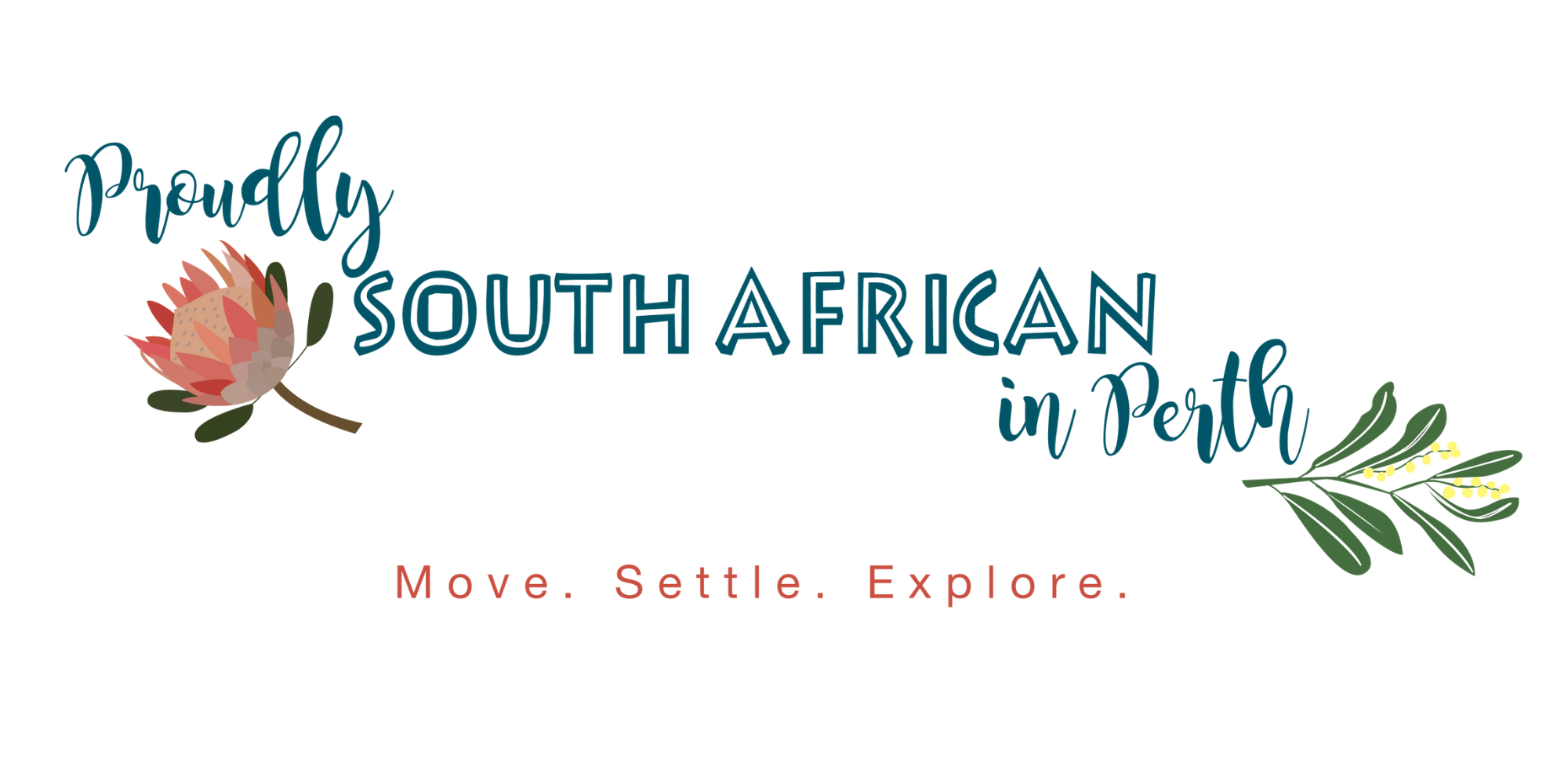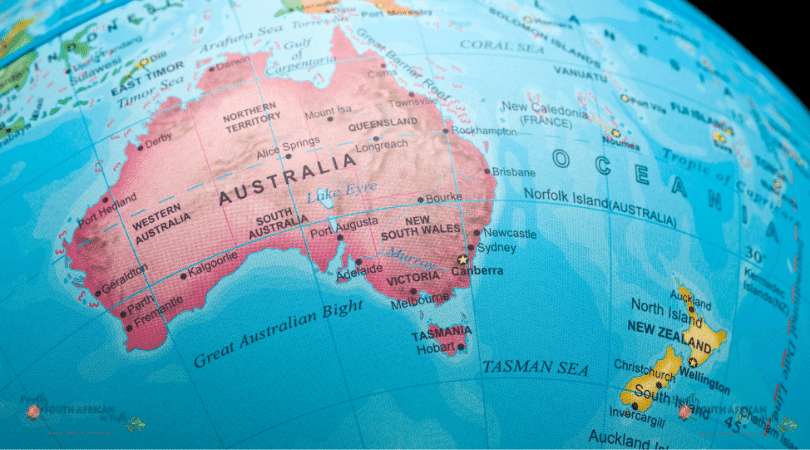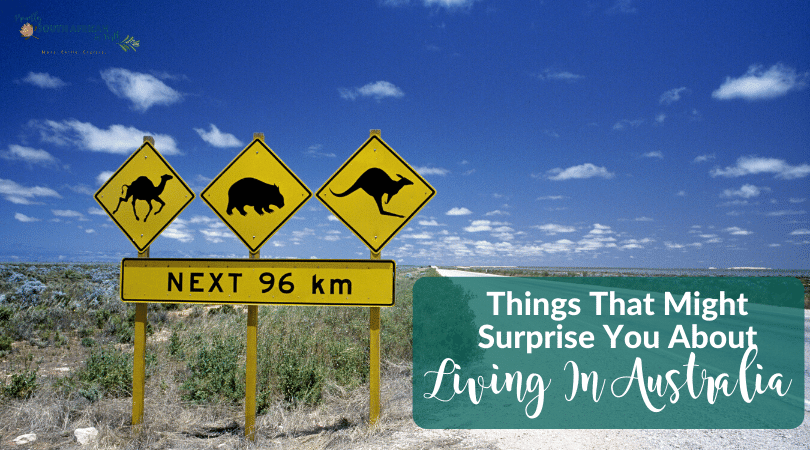A question I often see online from people considering emigration, is ‘should I move to Australia or New Zealand?’.
Because these two countries are geographically close to each other, many people can’t see what the main differences are between moving to Australia and moving to New Zealand.
I’ve broken this question down into categories, and explained the main similarities and differences for each country, to help you work out whether you should move to Australia or move to New Zealand.
From visas to weather, schooling to lifestyle, find out everything you need to know about which country you should move to – Australia or New Zealand.
Should You Move To Australia or New Zealand?
Visas
Because this is a heavily regulated industry, and rightly so, I reached out to some respected migration agents to share some information regarding the current most common visa types, costs and time frames for both countries. As with all things visa-related, these are subject to change at any time by each respective government so please consult a trusted migration agent for up to date information regarding your particular circumstances.
Australia – Evan Bishop (Worldly Migration – MARN 1679414)
“There are almost 100 different active visas for Australian migration, so naturally, the costs vary greatly. Typically, visas for Permanent Residency are more costly than Temporary Residency, however while most TR visas are only several hundred dollars, some can be thousands, such as the 2-year Short Term Stream version of the Temporary Skilled Shortage 482 Visa ($1290 AUD for just the main applicant and not even a pathway to PR) and the Partner Visa ($7850 AUD for just the main applicant), which is one of the most expensive of its kind in the world, double that of the UK and triple of the US.
Very common for migrating permanently to Australia are the General Skilled Migration visas, which currently start from $4115 AUD.It is important to note that almost all visas undergo a slight annual increase on the 1st July to mark the commencement of the Australian financial year.
Whilst the Partner Visa option doesn’t come cheap, the other family options are expensive also.
For Parent Visas and Aged Parent Visas, the cost is from $6490 AUD, however the processing times are currently approximately 12 years! Want to pay more money to get processed quicker? The visa is instead called a Contributory Parent and Contributory Aged Parent Visa and the cost starts from a whopping $47,825 AUD, with processing times still upwards of approximately 6 years due to popularity.”
New Zealand – Ava Neal (Visa Plex – LIA 200900809)
“While NZ has had one of the strictest border closure in the world since the Covid-19 pandemic started; the government has recently announced that the NZ border will be open in 5 stages.
This means that we can start welcoming skilled workers into the country from July 2022 under the new Accredited Employer Work Visa (AEWV).
While the fine print for this visa has not been released yet, the key here is that when people are trying to find employment in NZ, they look for an “accredited employer”. However, this is a new accreditation scheme which will open on the 1st of May 2021 for employers to become accredited; by the time the border opens to skilled workers, the employer must be accredited before offering employment to a foreigner.
While the NZ borders remain closed, people can use a number of “border exceptions” in order to enter the country. These border exceptions lead to a “Critical Purpose Visitor Visa (CPVV), which allows the holder of this visa to come to NZ to work for short or long term periods; in most cases they can bring their immediate family with them.
The Skilled Migrant Category Residence program is suspended at the moment; however, it has been said that it may resume in July albeit with some changes. Suffice to say that the key in the SMC resident visa is the allocation of points to a number of the applicant’s background such as age, work experience, and qualifications.
If you want to bring your parents over, the Parent Category Residence Visa, is also suspended at the moment. However, there is an alternative to it called the Parent Retirement Visa. Which is a visa for parents of NZ residents/citizens who do not have any other dependant in their care and who can invest NZ$1’000.000 to invest in NZ for 4 years; in addition, the parent needs to demonstrate that they have $500,000 in settlement funds and an annual income of at least $60,000.”
Jobs
Australia
Being a vast country with the world’s 13th largest economy and a population of over 25 million, Australia has several large cities with thriving industries spread across the entire country. It is therefore not surprising that Australia offers job opportunities in almost every sector and will be preferred by people whose main reason of emigrating is to progress their careers.
Salaries tend to be higher in Australia, but so too is the cost of living and Aussies generally have to work hard. There are often long hours in many jobs and taxes are fairly high too. In general, Aussies enjoy a higher standard of living and unemployment is generally quite low.
New Zealand
New Zealand is a smaller country with a population of under five million people and most of the big corporates are based in and around Auckland.
Salaries can be lower here compared to Australia, but taxes are lower than their neighbours too.
Job opportunities are fewer than Australia, given the smaller population and size of the country, but with the economy having growing exponentially in recent years, New Zealand was voted as the easiest country to start a business by The World Bank in 2017. Something of real importance that many self-employed expats will appreciate.
Cost Of Living
Australia
The cost of living in Australia is marginally higher than New Zealand, but Aussies generally earn more, balancing the equation somewhat. Rents are higher, particularly if you are wanting to live near the city centres or close to the beach. Read more on the cost of living in Perth here.
New Zealand
Honestly there is not much in it when you compare the cost of living between Australia and New Zealand.
Although goods and utility services may cost less in New Zealand, your purchasing power is less too. Imported goods can be somewhat expensive. The South Island is also often considered cheaper to live in.
With cities and towns being far smaller with less people and traffic, commuting to and from work is far quicker, easier and far less costly than in the big cities of Australia (perhaps with the noted exception of Auckland where traffic is a nightmare, like most capital cities).
This is a helpful site comparing the cost of living in NZ to Australia.
Housing
Australia
Property is considered expensive and obtaining a mortgage can be difficult depending on your credit history in the country. Rents are usually around 10% higher than New Zealand, but of course this varies from city to city and the regional areas. The further away from the city centre you live, you’ll generally find the lower the rents and property prices.
New Zealand
Other than being a little cheaper than Australia, there is not much else to compare. The country offers a wide variety of housing to suit all tastes, and it’s wise to rent for a while first before you commit yourself to buying.
As in Australia, housing in the smaller towns is generally more affordable than in the big cities.
Healthcare
Australia
Australia has excellent private and public healthcare systems to match any First World country. The public Healthcare (Medicare) offers free or subsidised services to Australian citizens, permanent residents and even some temporary residents too.
You can enrol in Medicare if you live in Australia and you’re any of these:
- an Australian citizen
- a New Zealand citizen
- an Australian permanent resident
- applying for permanent residency
- a temporary resident covered by a ministerial order.
You can also enrol if you’re a citizen or permanent resident of any of these:
- Norfolk Island
- Cocos (Keeling) Islands
- Christmas Island
- Lord Howe Island.
You may be able to enrol if you’re visiting from a Reciprocal Health Care Agreement country.
There are some limits on what is covered under Medicare, for example no dental treatment is covered so private health care is highly recommended as a 6 monthly check up can cost around $600 per person depending what checks are carried out!
In an emergency, the public healthcare system is fantastic and you will be treated quickly and often with amazing staff and care, all without spending a cent if you are registered with Medicare.
While the system can be confusing, once you get your head around what you get for free, what you can claim back, and what you pay for upfront, it’s quite efficient and affordable for many.
Find out more about Medicare here.
New Zealand
Not to be outdone, New Zealand also has an excellent public healthcare system offering free or subsidized world-class services to their residents. Most people do not bother with private health insurance and rely on the public system.
You may be eligible for subsidised healthcare if you are:
- a New Zealand citizen or permanent resident or resident (exceptions apply if you are an Australian citizen or permanent resident – check the Ministry of Health website)
- a work visa holder who is allowed to work here for 2 years or more
- the holder of a work visa that allows you to work here 2 years or more when combined with time you have spent in New Zealand just before getting your current work visa. For example, you qualify if you had a visa that allowed you to be in New Zealand for one year, and you now have a work visa that allows you to stay another year.
- under 17 and your parent or guardian is eligible
- an interim visa holder who was eligible immediately before you got the interim visa
- a refugee or protected person.
If you are not on this list, you may still be eligible for the full range of services or for limited services – check details on the Ministry of Health website.
A number of companies offer private health insurance policies which cover costs in the private system. You can decide how much cover you want and the types of services you want to be covered for. Note that to be able to buy most private health insurance schemes in New Zealand you must be eligible for publicly funded healthcare.
The private healthcare system gives you control over when and where you are treated for health issues. You are also usually able to choose the doctor, specialist or hospital that you prefer.
There are two main types of policies:
- ‘Comprehensive cover’ policies that cover you for all your medical costs, including GP visits and prescriptions
- Policies that provide cover for combinations of specialist care and elective (non-urgent) surgery.
Find out more about healthcare services in New Zealand here.
Education
Australia
Australia offers both public and private schooling of high standards and have over 40 universities to choose from, six of which being rated in the top 100 in the world.
University fees are regarded as fairly expensive, but public (government funded) schooling is very affordable. Entry is based on catchment area, which may help you decide where to live.
Public high school fees may cost up to $1 000 per annum, while private school fees can range from $5,000 – $12,000, but in some schools they could reach up to $30 000 per annum or more.
At most private schools, class sizes are kept small and schools provide specialist teachers in certain subjects. Most public high schools have sizes around 30 children per class, and some can have 10 or more classes per year.
Primary schools are generally considered good no matter what area they are in. Parents are often more selective when it comes to high school, compared to primary schools.
New Zealand
New Zealand offers an education system of the highest standards through both public and privately run schools to match that of Australia, and is also based on catchment area.
Eight universities spread across the country, offer no-fees for first-year students who are citizens, permanent residents, or have lived in the country for at least three years.
Auckland University also features among the top 100 in the world.
Weather
Australia
Although a vast country with a varied climate, the weather here is generally good most of the year, and most conducive to a wonderful outdoor lifestyle, almost all year round.
For South Africans, it can feel like a home from home. Temperatures in some areas can regularly soar into the 40s during summer, and regional areas can even see 50+ degree days.
Melbourne is generally considered to have the ‘worst’ weather when it comes to cities, and Hobart stays pretty cool all year round (hence the fantastic red wines they produce). Perth and Brisbane are often considered to have the ‘best’ weather – that’s if you love the heat and are not a fan of winter, as they don’t tend to get cold or if they do it’s not for long at all.
New Zealand
Weather in New Zealand can be more extreme, with really lovely summers but cold and wet winters.
The appeal of gentle snow-covered hills and white-peaked mountains, may provide an extra incentive to some.
The average daytime temperature in NZ over winter is around 12-16 degrees, and summer is usually 20-25 degrees. So if you prefer the cooler weather, NZ is the country for you.
Lifestyle
Australia
The lifestyle you prefer will determine to which country you should emigrate. Australia offers a fantastic outdoor lifestyle with loads of shopping, nightlife entertainment, free public parks, sporting events, restaurants and bars in all cities, and a spectacular coastline with some of the world’s finest beaches – over 22,000 to be exact.
Distances between cities are vast and journeys are long, but the remoteness and natural beauty of the areas in between are truly magnificent. Living in the cities can be a little more rushed than the the more regional areas, but a most efficient public transport system makes it easy to get around within most of the metropolitan areas.
New Zealand
Being a smaller country with smaller towns closer together and fewer people, life in New Zealand moves at a slightly slower pace. Kiwis are often considered slightly more laid-back than their cousins across the pond.
The country also offers a fantastic outdoor lifestyle, with the two islands packed with a stunning coastline rich in marine life, towering mountains, glacial fjords, sparkling rivers teaming with fish, and long rolling hills and valleys. Hikers, bikers, mountaineers, fishermen, photographers, and all lovers of nature will find spectacular scenery around every bend.
When it comes down to crime, New Zealand is the second safest country in the world – second only to Iceland! This fact alone could be the absolute decider for many South Africans and other nationalities too.
All in all, both countries offer a truly wonderful lifestyles and are popular destinations for many expats from around the world.
Choosing to move to Australia or New Zealand depends entirely on your individual preferences, family requirements and lifestyle choices – but don’t forget that the first step should often be to the place where you can most easily find employment. Because once you start earning dollars, whether they be Aussie ones or Kiwi ones, you’ll find it a lot easier to settle, explore and make the best decisions for the future.






No Comments